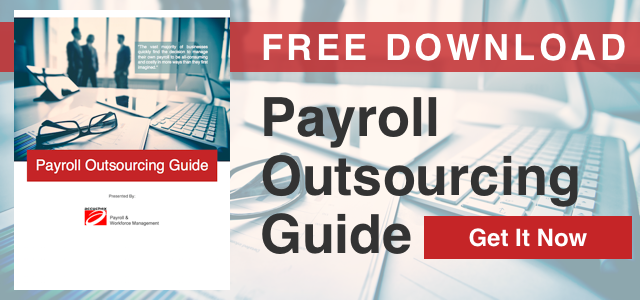California labor law is vast, complex, and constantly changing. The challenge for HR and Payroll professionals is in knowing and properly complying with it all.

Keeping up with and understanding the ever-growing (and changing) body of California labor laws is essential for HR professionals and Payroll departments. These are the people in most businesses who must ensure that employees are being paid correctly and on-time. Consequently, both groups need to understand the impact that an employee’s working schedule may have on his or her pay.
Understanding “Reporting Time Pay”
In California the concept of “reporting time pay” was created to ensure employers aren’t taking advantage of workers by over scheduling a shift then sending them home if not needed.
The Industrial Welfare Commission Orders require employers to pay their nonexempt employees for regularly scheduled, but un-worked time because of the lack of proper notification or inadequate scheduling by the employer.
Reporting Time Scheduling
The California Code of Regulations describes Reporting Time Pay as the time an employee must be paid based on the employee’s scheduled shift. This part of California labor law serves to address employers who schedule employees for full shifts and then send them home because business doesn’t warrant them working the full shift.
In essence, if an employee is sent home by the employer before the end of at least half of their usual shift, they are entitled to be paid a minimum of half their shift. According to the California Department of Industrial Relations (DIR), there are certain requirements and exceptions for reporting time pay.
The following are specific requirements for reporting time pay:
- Each workday an employee is required to report to work but is not put to work or is furnished with less than half of his or her usual or scheduled day’s work, the employee must be paid for half the usual or scheduled day’s work, but in no event for less than two hours or more than four hours, at the employee’s regular rate of pay.
- If an employee is required to report to work a second time in any one workday and is furnished less than two hours of work on the second reporting, he or she must be paid for two hours at the employee’s regular rate of pay.
Exceptions to the requirement for reporting time pay, found in IWC Orders 1-16, include the following situations:
- When operations cannot begin or continue due to threats to employees or property, or when civil authorities recommend that work not begin or continue.
- When public utilities fail to supply electricity, water or gas, or there is a failure in the public utilities or sewer system.
- When the interruption of work is caused by an Act of God or other cause not within the employer’s control, for example, an earthquake.
In addition, employers are not obligated to pay reporting time pay under the following circumstances:
- If the employee is not fit to work.
- If the employee has not reported to work on time and is fired or sent home as a disciplinary action.
The reporting time pay provisions do not apply to employees on paid standby status or when an employee has a regularly scheduled shift of less than two hours, such as a relief cashier who works only during a one-hour period in the middle of the day.
Truth About Minimum Work Hours Per Day
Because California labor law mentions a two hour minimum and a four hour maximum, many have confused that to mean the law requires employees be scheduled a minimum number of work hours per day.
Not true.
The California Court of Appeals clarified this in the case of Aleman v. AirTouch Cellular, ruled on December 21, 2011. Although this case was brought regarding employee meetings, the ruling makes clear that the amount due to the employee is based on the actual length of their scheduled shift, and not on an arbitrary four hour, or eight hour shift.
And, it clarifies that California labor law does not require a minimum hour work day. It simply requires employers to pay at least half of the employee’s scheduled shift if the full shift isn’t worked.
In addition, the California Court of Appeal has clarified the scope of an employer’s obligation to pay reporting time and split shift premiums for short meetings that are scheduled in advance.
The Court ruled that an employee was not entitled to reporting time pay for attending scheduled meetings that ran shorter than expected because he worked at least half the scheduled time, even though the employee worked less than two hours.
What This Means for Employers
Employers don’t have to provide a minimum shift for their employees, but they do need to be careful on how they schedule them. By understanding California labor laws and considering the impact when scheduling, employers can ensure that they stay compliant, and therefore minimize the cost related to reporting time pay due.
Many new regulations continue to expand the scope of risk for employers, and require new workplace postings or changes to existing workplace policies. We recommend that all California employers consult with experienced employment counsel to ensure compliance.
Accurate and timely management and compliance practices are required for every business and every payroll professional. But there are options.
Accuchex, a reputable payroll management services provider, can not only relieve you of the burden of your ongoing payroll process demands, but can potentially prove to be a more cost-effective solution, as well.
To get your free download: Payroll Outsourcing Guide click the button below and let us help you make an informed decision. Or you can call Accuchex Payroll Management Services at 877-422-2824.



